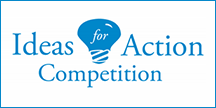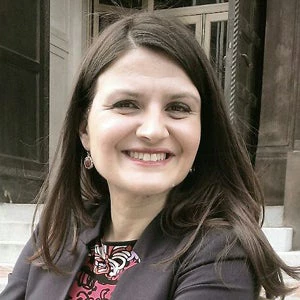
The World Bank Group and the Wharton School of Business are co-sponsoring “Ideas for Action,” a competition to mobilize youth across the development community to invent, foster, and inspire innovative solutions to financing development post-2015.
Nearly half the world’s population is under 25 – 2.9 billion people. Today’s youth will be responsible for delivering the post-2015 development agenda, also known as the Sustainable Development Goals, which will replace the Millennium Development Goals when they expire at the end of 2015. The new goals will be more ambitious, covering a broad range of interconnected issues, from sustainable economic growth to social issues to global public goods. To realize this vision, an equally ambitious plan for financing and implementation is needed.
Teams are self-selected and made up of three to five members, ages ranging from 18 to 35 years old. The deadline for submissions is Jan. 31, 2015. Finalists will be announced on April 5, 2015, and the winners on March 30, 2015. Winners will be given an opportunity to influence the post-2015 financing discussions and its implementation.
Solution Areas
Teams are invited to focus on one of the issues below and develop a creative yet realistic and implementable solution that will increase the financing available and/or improve the efficiency and effectiveness of existing funds. Another possibility is to select more than one issue, and develop a solution that is based on blended sources of finance.
Domestic Resource Mobilization: improving the ability of countries to collect and direct public resources generated from taxes and/or improve efficiency of public spending. Areas of particular relevance are (i) tax policy and collection; (ii) harnessing sustainable streams of revenue from natural resources; (iii) subsidy reform; and (iv) improving public sector procurement practices.
- Examples of submission topics: “Restructuring mineral extraction contracts in Sub-Saharan Africa to provide more sustainable social benefit and financial return;” “Subsidizing crops of the future: how a change in agricultural subsidies in one South American country can be a lesson to others.”
- Examples of submission topics: “A new model for recipient-centric accountability mechanisms in ODA loan programs;” “Using different results metrics to improve aid project outcomes.”
- Examples of submission topics: “Co-financing arrangements as a means to increased roadway investment in Sub-Saharan Africa”; “Taxes, construction regulation, and urban sewage reform in Southeast Asia”; “improving project cycle and investment environment to attract institutional investors including sovereign wealth funds”; “Implementing policies and mechanisms to direct remittances towards development.”
- Example of submission topics: “A new type of aid: improving small and medium-sized enterprise access to financing via novel national-scale loan instruments.”
- Examples of submission topics: “A novel model for new-country investment: using public funds to limit fixed costs of electronic equipment manufacturing;” “Limiting private-public corruption with new public awareness tools in Central Asia.”
To submit your proposal for financing the post-2015 agenda, please visit: http://www.zicklincenter.org/#!ideascompetition/ccl3



Join the Conversation